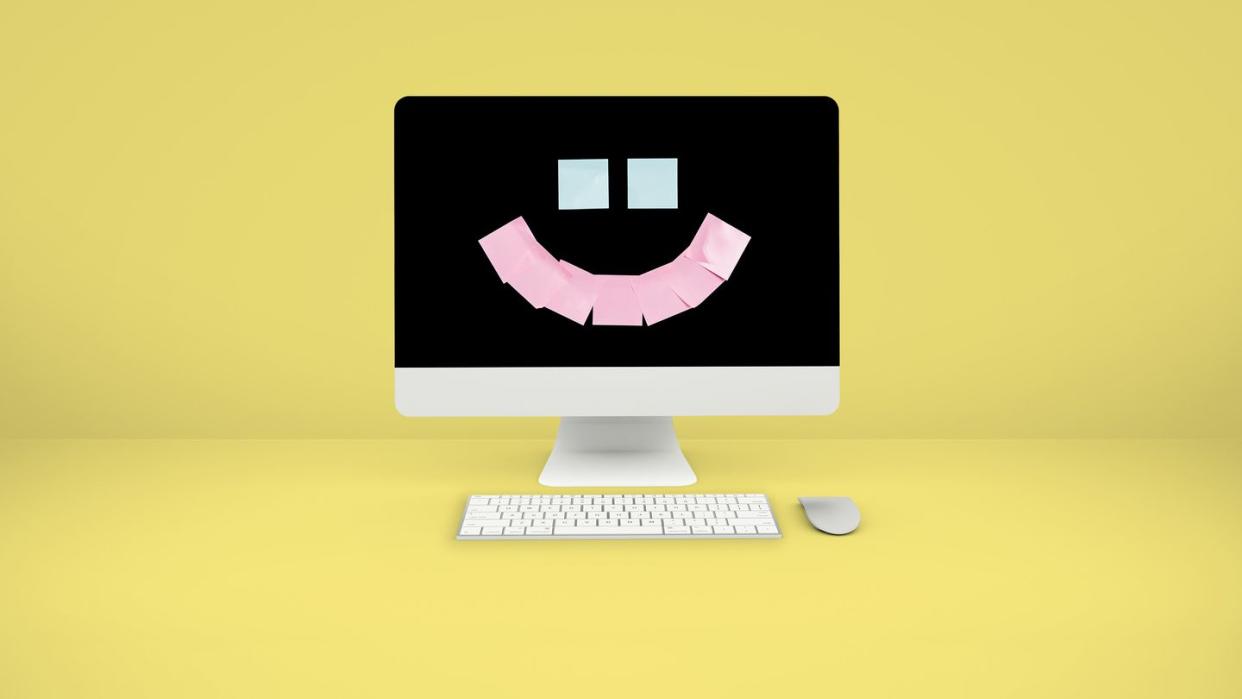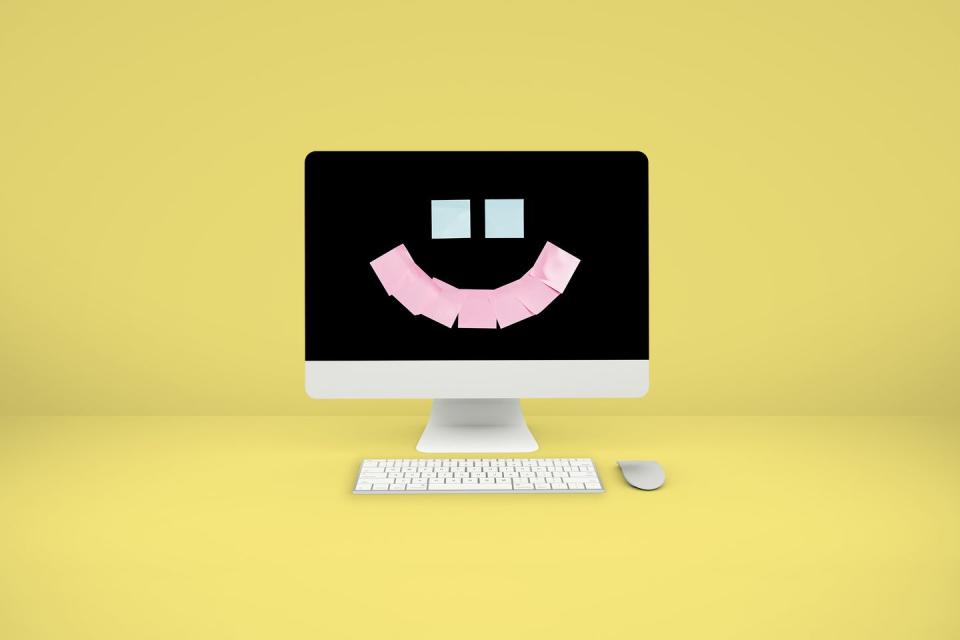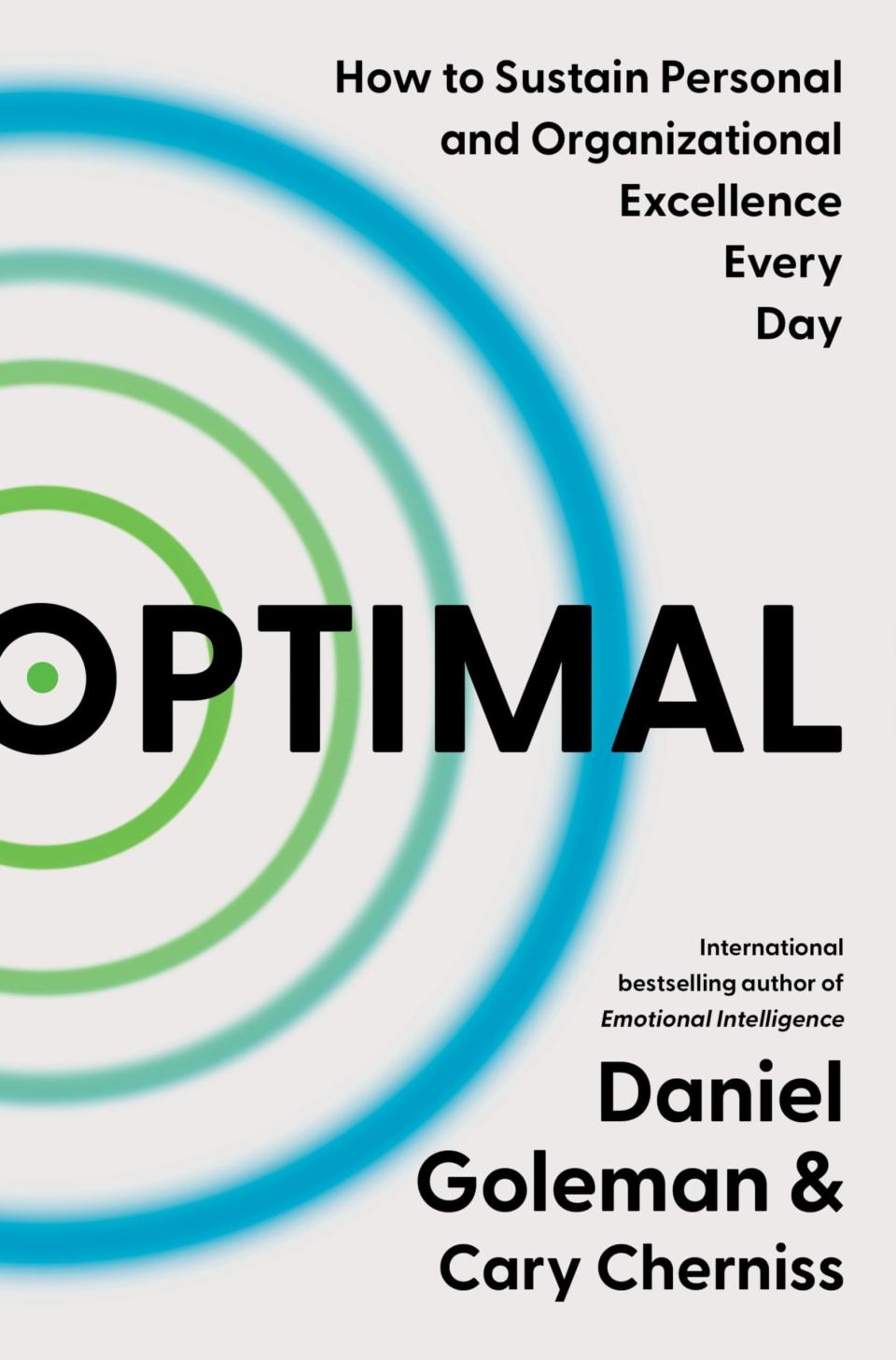How to Have a Good Day at Work

- Oops!Something went wrong.Please try again later.
"Hearst Magazines and Yahoo may earn commission or revenue on some items through these links."

Psychologist Daniel Goleman’s 1995 book Emotional Intelligence revolutionized the way we talk about intelligence and spent a year and a half on the New York Times bestseller list. His latest book, Optimal, coauthored with Cary Cherniss, focuses on how we can build personal and organizational excellence in all areas of our lives.
What are the ingredients of a great day at work? The kind of day that leaves you feeling satisfied and fulfilled? In their book The Progress Principle, psychologists Teresa Amabile and Steven Kramer detailed part of a Harvard Business School study in which they asked 238 women and men at seven different companies to keep daily journals about their inner work life. The highlights of a great workday were as follows:
You’re more productive, turning out high-quality work
You’re more creative, solving the problems of the day
You feel good—you’re in an upbeat mood
You’re mentally sharp, making daily progress toward a larger goal
You have a positive outlook on whatever happens
You’re engaged and feel committed
You give and get support from the people around you
Maybe those sound appealing—but also impossible to achieve. The good news is most anyone can have days like this. The trick, it turns out, is managing disturbing emotions so you can focus. Research by psychologists Matthew Killingsworth and Daniel Gilbert at Harvard University found that a major source of our bad moods at work is in our own minds, rather than what happens to us. The title of their study of 2,250 women and men, printed in the prestigious journal Science, says it all: “A Wandering Mind Is an Unhappy Mind.” They found that people are distracted in general around 47 percent of the time—and unfortunately, people can sometimes be distracted even more while at work.
What distracts us most is not the mess someone leaves in the lunchroom or your fifth meeting of the day but, rather, our own upsetting, disruptive thoughts, like Why didn’t he answer my email? Why did she say that thing to me? These personal interactions are what we obsess about when we wake up in the middle of the night, or think about over and over instead of what we need to be focusing on in any given moment. Here’s how to break free from the chatter:
Have a daily meeting—with yourself
Thankfully, your power of focus can be buffed up by strengthening your brain’s circuits for concentration, in much the same way you’d build muscle power at a gym—through steady practice and basic reps. Here’s a highly effective way to build your brain’s capacity for focus:
Find a quiet time and place where you won’t be disturbed or have to answer your phone. Sit upright comfortably—a straight-back chair is fine. Now bring your attention to your breath. Follow the whole in breath and the whole out breath. Then do the same with the following breath.
When your mind wanders off, and you notice it wandered, let those thoughts go, and then bring your focus back to your breath and start again with your next breath.
That’s the basic move. You’re training your brain to ignore distractions and concentrate. After you’ve built your power of concentration, you can add “open monitoring,” where you watch your thoughts come and go without getting lost in them. Start with a short length of time, say five or 10 minutes, and gradually extend it. Find a time during your day when you can be fully focused, and then practice regularly. If you feel like you need a little help getting started, try an app like Calm, Ten Percent Happier, or Headspace.
Stronger attention with an ability to let go of distractions is the skill that transfers to your time at work. It’s the mental equivalent of getting more physically fit. Studies by neuroscientist and attention researcher Amishi Jha at the University of Miami find that such attention training (sometimes called “mindfulness”) has a range of benefits, from strengthened concentration to enhanced alertness. Those indicators of a great workday? “I 100 percent agree that strengthening attention hits the mark on all of them,” she says.
And, she adds, “I’ve had lots of days like this—the odds of hitting these great-day indicators are greater if I’ve done some kind of attention exercise. I’m more aware of whatever comes up in my mind, and can let thoughts come and go.”
Keep practicing
Don’t expect a miraculous, overnight change. Progress comes gradually, just as with getting more physically fit via workouts. Jha describes it as a “dose-response” effect: The more time you put in, the better the results, as she details in her book Peak Mind.
The benefits of building your attention power feed into the likelihood of having that great day at work. For one, this attention strengthener is explicitly a way to get more absorbed (companies call it “engaged”) in what you need to be doing, and ignore whatever distractions come your way, including the seductions that lure you to your phone. There’s a twofer here: The same circuits that focus attention also make you calmer and put you in a better mood.
Enjoy the payoff
A bonus: This simple brain workout also boosts your resilience under stress, according to findings by neuroscientist Richard Davidson at the University of Wisconsin-Madison. With progress, you won’t be triggered as often, your upsets will be less intense, and you’ll recover more quickly if you do lose it.
Research on creativity has long shown that the more upbeat your mood, the better your problem-solving and ability to concentrate on what’s important to you in the moment. The worse your mood (as we all know), the poorer your focus, morale, and creativity. Being upset captures your attention, fixating it on what’s eating you. But as you calm down, your attention frees up, and you can be more mentally sharp. And the less self-absorbed in your problems you are, the more socially available you become. Instead of lurching through your day like a zombie, you’re more likely to reach out, joke with colleagues, and enjoy the people you work with. You might even become what companies call a good “organizational citizen,” someone who helps out coworkers beyond the limits of your own job description.
As Jha puts it, “You don’t have to leave it to chance whether you have a great day.”
Optimal, by Daniel Goleman and Cary Cherniss. Copyright © 2024 by Daniel Goleman and Cary Cherniss. Reprinted courtesy of Harper Business, an imprint of HarperCollins Publishers.

Optimal: How to Sustain Personal and Organizational Excellence Every Day
amazon.com
$26.49
Harper BusinessYou Might Also Like

